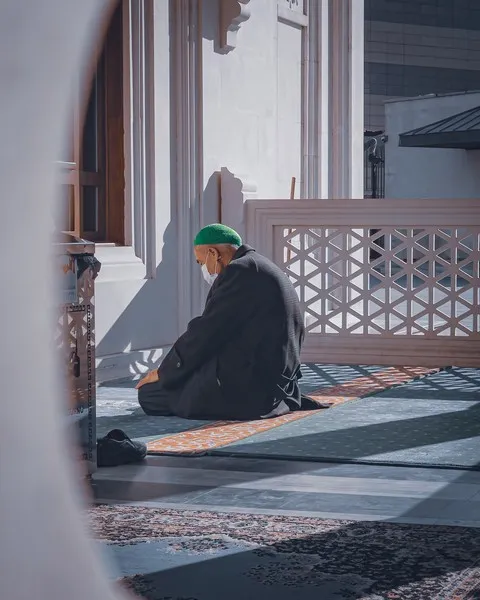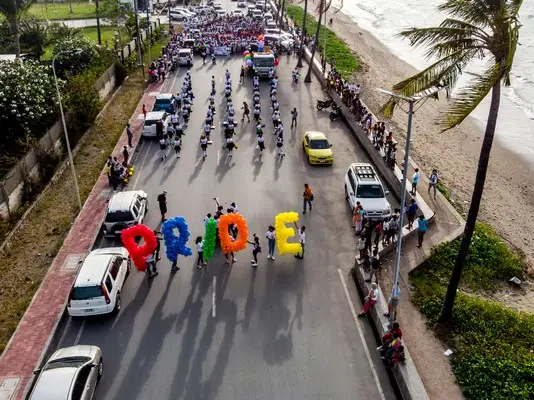Table of Contents
- Historical Context and Significance
- Community Formation and Support Networks
- Challenging Stereotypes and Prejudices
- Case Studies and Personal Narratives
- Social Integration and Broader Implications
- Workshops and Educational Initiatives
- Conclusion
- Poll
- Think!
- Essay Suggestions
- Research Suggestions
- Further Reading
The BBC are reporting on a story of the first Muslim Pride Event to be held in 2024. It is important to read that article before this one as some of the content relates to the story of Ferhan Khan who is featured in the story. The inaugural Muslim Pride event, organized by Imaan LGBTQI+, marks a significant milestone in the intersection of faith and sexuality. This event not only celebrates queer Muslim culture but also challenges prevailing narratives about the incompatibility of Islam and LGBTQ+ identities. This article examines the importance of the first Muslim Pride event through a sociological lens, focusing on community formation, identity validation, and the broader implications for social integration and visibility.
Historical Context and Significance
The Emergence of LGBTQ+ Muslim Advocacy
The emergence of LGBTQ+ Muslim advocacy is a relatively recent yet profoundly significant development in the landscape of social justice and human rights. Historically, the intersection of LGBTQ+ identities and Islamic faith has been fraught with tension, primarily due to the sociocultural and theological interpretations that have often positioned these identities as mutually exclusive. The advocacy for LGBTQ+ Muslims, therefore, represents a crucial effort to bridge this perceived divide and provide a voice to those who navigate these intersecting identities.
Historical Context and Challenges
For much of history, LGBTQ+ individuals within Muslim communities have faced significant challenges, including social ostracism, familial rejection, and in some cases, legal persecution. In many Muslim-majority countries, homosexuality remains criminalized, and individuals who deviate from heterosexual norms can face severe penalties, including imprisonment and even death. This hostile environment has contributed to the invisibility of LGBTQ+ Muslims and the suppression of their identities.
In Western contexts, where Muslim communities are often minorities, LGBTQ+ Muslims face a different but equally challenging set of obstacles. They navigate the dual pressures of Islamophobia from the broader society and homophobia within their religious communities. This dual marginalization exacerbates their sense of isolation and complicates their ability to find supportive spaces where they can express their full identities.
The Role of Organizations
The formation of advocacy groups like Imaan LGBTQI+ has been instrumental in addressing these challenges. Founded in 1999 in the United Kingdom, Imaan was one of the first organizations dedicated to supporting LGBTQ+ Muslims. The group’s mission is to provide a safe space where individuals can reconcile their faith and sexuality, share their experiences, and find support and solidarity. Imaan offers various services, including social events, educational workshops, and mental health support, all aimed at fostering a sense of community and empowerment among LGBTQ+ Muslims.
Other notable organizations have emerged globally, each contributing to the growing movement for LGBTQ+ Muslim rights. In the United States, organizations like the Muslim Alliance for Sexual and Gender Diversity (MASGD) work to support LGBTQ+ Muslims through advocacy, education, and community-building efforts. These organizations play a crucial role in challenging the dominant narratives that portray Islam as inherently opposed to LGBTQ+ identities and in advocating for more inclusive interpretations of Islamic teachings.
Advocacy Through Visibility and Education
Visibility and education are key strategies employed by LGBTQ+ Muslim advocacy groups. By participating in public events like Pride parades and organizing their own events, such as the Muslim Pride, these groups challenge stereotypes and increase the visibility of LGBTQ+ Muslims. This visibility is essential in combating the pervasive myths and misconceptions about the incompatibility of Islam and LGBTQ+ identities.
Educational initiatives, including panel discussions, workshops, and publications, further support the advocacy efforts. These initiatives aim to provide both LGBTQ+ Muslims and the broader community with the knowledge and tools to understand and support the intersection of faith and sexuality. By engaging with scholars, theologians, and activists, these organizations foster a more inclusive and nuanced discourse around Islamic teachings and LGBTQ+ identities.
Community Formation and Support Networks
Get the full article AD FREE. Join now for full access to all premium articles.
View Plans & Subscribe Already a member? Log in.





